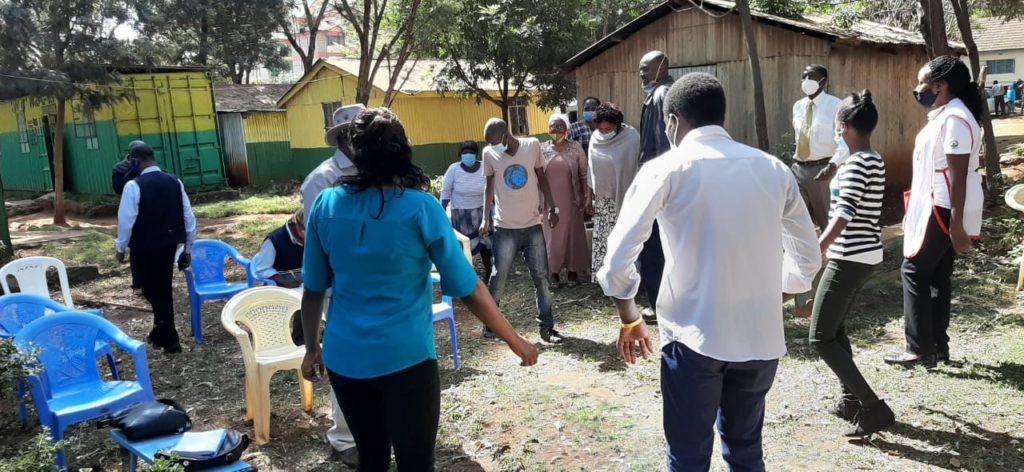Non Communicable Diseases (NCDs) especially diabetes and hypertension are a growing concern among urban dwellers in developing countries. As the World Health Organization (WHO) notes a changing epidemiological profile in Low and Middle Income Countries (LMIC) from infectious diseases to NCDs, access to healthcare services still remains a challenge. Acknowledging the need to improve access to patients suffering from NCDs at Kasarani Health Center, the in charge at the facility instituted moves to establish a clinic which would be key in ensuring continued access to medicines, treatment follow up and support for the patients who need such care due to the psychological impact of these diseases.

On 9th October 2020, a team from PharmAccess Foundation (PAF) (Bernice Mugure Mwangi and Anastacia Wangari Njoroge) and Ryculture Health and Social Innovation (Odhiambo David) joined the hospital team led by Dennis Nthiga, the Clinician In-Charge to flag off the clinic roll out plans. The meeting drew over 40 patients suffering from diabetes, hypertension or both who had been informed from previous data that had been collected at the clinic through previous visits.
During the opening discussions, it was made clear by the patients that they were facing challenges in getting medicines for their conditions and beyond this there were other concerns that impeded their uptake of services and response to therapy even when they took their medicines. It was acknowledged that the patients needed an established point of care for continuous monitoring that would guarantee therapy optimization. Additionally, being these conditions are managed through long term medicine use, it is important to ensure there is continued access to medicines for the patients. It was resolved that through a support group that would be anchored at the clinic, the patients would establish a contribution plan that ensures they get the medicines they need in a timely manner through structured engagements through the clinic that was to be established.
The team involved took time during the meeting to delve into discussions on contributing factors to these conditions including lifestyle and nutrition. They also outlined the importance of medicines compliance in efforts to manage these conditions. These were well received by the patients who appreciated the need to have such sessions continually to help them in their treatment journey. Being COVID-19 season, the team went ahead to demystify myths and misconceptions around the raging pandemic that would counter interventions to control and stop spread with probable catastrophic outcomes. This included guidance to comply with recommended public health measures such as hand washing, wearing face masks, avoiding crowded places, keeping 1.5m distance among others.
Other concerns that the patients needed addressed through the clinic days included stress management, nutritional counselling, medication counselling and lifestyle modification guides.
This was the start of a journey into the future of NCDs care keen on improving access to quality care, improving treatment outcomes and promoting healthy living that draws on partners committed to a common agenda of improving access to healthcare and general human wellbeing.
The next clinic day was set for 13th November 2020 during which the support group interim leadership would provide guidance on how they would be operating and contributing to care of their members.

